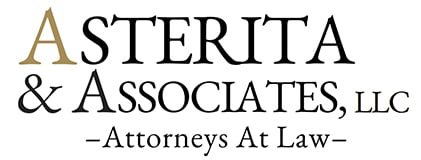Eight Steps To Buying A Home In New York
For most people buying a home, it can be one of the most important financial and lifestyle-changing decisions that they make in your life. The past several years have seen many changes in the real estate market, including fluctuating prices, increased governmental regulation and more stringent lending practices. If your home purchase is not handled properly, the dream of homeownership can quickly become a nightmare. With so much at stake, it is important to work with trusted and trained professionals, including realtors, mortgage lenders, mortgage brokers, and legal counsel knowledgeable with local practice customs and laws to help guide you through the process and to help you avoid many of the pitfalls that could impact your transaction. This guide seeks to provide you with an overview of the steps in a standard real estate transaction.
1. Deciding To Purchase A Home
A prospective buyer must first determine where and what type of home they want to purchase and what they can afford. One of the first steps in this process is to contact a bank or mortgage broker to review your finances and provide you with a mortgage commitment or pre-approval letter. Real estate agents and sellers typically require this letter before showing you a home or accepting any purchase offer that you may wish to make so a seller can be sure that you are financially able to purchase a home.
2. Using A Real Estate Agent
A prospective buyer must know that a real estate broker or agent works for the seller of the home whom they have contracted to sell on their behalf. You can privately engage a realtor to act as a buyer’s agent, so you can be assured that your agent has your best interests in mind when showing you a home or negotiating a purchase for you. A realtor will receive a commission on the sale of the home and, while negotiable, their compensation typically ranges from 2-6% of the purchase price. It is paid by the seller when and if the transaction closes. When a buyer finds a home on which they wish to make an offer, the realtor-broker usually serves as an intermediary to negotiate the price and other items of the sale. At a minimum, from a buyer’s perspective, it is imperative that any purchase binders that a realtor encourages a buyer to sign be made “subject to attorney approval” or state that “this is not a contract for the sale of the property.” At this time, a buyer should be provided with a New York State Property Condition Disclosure Statement under New York state law. In most cases, if this disclosure is not provided by the seller, the seller must give a $500 credit to the buyer at closing.
3. The Inspection
The buyer must have the home inspected by a licensed home inspector or engineer before signing a real estate contract. The inspector will examine the many aspects of the home for defects, including faulty appliances and termites. The buyer should use this information to decide whether they want to proceed with the transaction or negotiate terms to be included in the contract before signing it. This is such an important step because most items that are not so addressed will, in most cases, be deemed accepted by the buyer and delivered in such condition by the seller at closing.
4. The Real Estate Contract
Typically, the seller’s attorney prepares a contract. This document is then reviewed by the buyer’s attorney, who will work with the seller’s attorney to negotiate any necessary changes. The contract typically provides for many issues, including the agreed-upon purchase price, a contract deposit, and other obligations of the parties. A good attorney will review the terms of the contract with you, ensure that it is in line with your understanding of the transaction, and further negotiate additional provisions such as a mortgage contingency clause to ensure that if the buyer’s mortgage application is denied, the buyer can recover the contract deposit and terminate the transaction. The parties are officially “in contract” once the buyers and sellers sign the contract and the deposit is delivered and clears.
5. Obtaining Financing
Most homebuyers finance 80% or more of their purchase price. Many types of mortgages are now available, including fixed- and adjustable-rate mortgages, FHA & VA mortgages. Another important issue to consider when applying for a mortgage, other than the interest rate and term, are the closing costs. These costs will affect the amount you decide to finance and the funds needed to complete the closing. You may want your attorney to review the terms of the mortgage, including your estimated closing costs before the closing, in which case you can provide your counsel with copies of the loan disclosures provided by your lender. Some of the important questions that you should raise with your mortgage lender are whether and when a mortgage can be prepaid, what happens if you make a late payment, how interest is calculated, and how are real estate tax and insurance payments calculated and handled. Be sure to use a licensed and qualified mortgage broker or licensed direct mortgage lender when applying for mortgage financing.
6. Title Insurance
The buyer’s attorney will typically order a title search from an abstract or title company on behalf of the buyer. The title company has several functions. The first is to search the seller’s title to the property, including any liens or encumbrances that have been placed on the property. The title company will either order a new survey or endorse a pre-existing one if accepted by the lender. Some of the issues determined by the title company include whether or not the deed correctly describes the property, problems with adjoining owners or prior owners, the existence of – and whether the preceding owner agreed to – any easements, covenants, or other restrictions. The title company will create a title report that will describe what is included and excepted from the title insurance coverage. The buyer is typically responsible for paying the costs of a title search. In New York State, title insurance rates are fixed, but search fees may vary. The title company will also provide title insurance both to you and the mortgage lender to ensure that you own a good marketable title to the property and to ensure that the lender has a good valid mortgage lien secured by the premises. Finally, the title company will also arrange to have a title closer attend the closing to clear any objections to the title, make arrangements to pay off existing mortgages and tax obligations of the parties, and record required documents, including the deed, mortgage, and mortgage satisfactions.
7. Zoning
A buyer should make sure that the attorney that he or she selects to represent them in a real estate purchase is knowledgeable in zoning restrictions and building codes in the locality where the property is located. For instance, you may want to build an in-ground pool, want to know if a Certificate of Occupancy is required for a shed or deck, or be certain that an extension or another improvement that was added to the house by the seller was legally constructed and approved by the local municipality. You may also want to know if part of the home can be rented, or if it can be converted to a commercial property. The attorney you choose to represent you in such an important transaction as this should know what types of permits are required and what other legal requirements must be met.
8. The Closing
Once the mortgage company has provided its mortgage loan commitment, title objections are cleared, and the buyer and the sellers can close in accordance with the terms of the contract the purchase is ready to be closed. Usually, the attendance at closing includes the buyers and sellers with their attorneys, an attorney representing the mortgage lender, the realtors and a title closer to clear final objections to the title insurance, determine payoff amounts and prepare documents for filing. At the closing, the buyer’s attorney and the seller’s attorney will determine any credits due to the parties and supervise the execution and delivery of the required closing documents. The lender’s attorney and the lender will prepare a separate Closing Disclosure (referred to as a “CD”) for the buyer and seller and provide it separately to the parties for review before closing. The CD includes the closing costs and adjustments made between the parties for taxes, water and other items and will provide the exact amount the buyer should bring to closing. Once the closing is completed, the buyer’s attorney should prepare and provide to the buyer with an additional closing statement detailing all of the financial terms of the transaction.
Get An Attorney Involved As Soon As Possible
At Asterita & Associates, LLC, our team of experienced attorneys can guide you through the complicated process of buying or selling a home. We regularly assist clients with simultaneous purchase and sales, short sales, and another real estate, condominium, and cooperative transactions in both New York and New Jersey and the earlier you involve your attorney in the process, the better.
Whether you are just beginning to think about buying or selling a home, have started looking for a home to purchase, or are ready to proceed to contract on a home, you can speak with one of o ur experienced attorneys to help you navigate the process via email at or by calling our New York office at 877-589-3177.

